Rutgers Law Welcomes Eight New Faculty
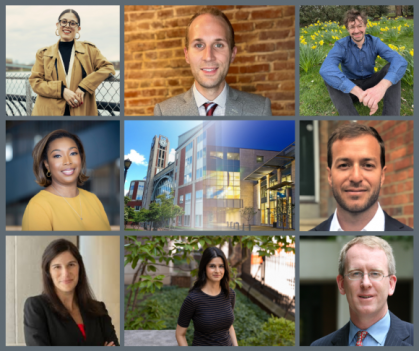
At Rutgers Law School, learning happens both inside and outside the classroom. As a result, its faculty is—by design—one of the finest and most diverse groups of legal scholars and clinical practitioners in the nation. This year, eight new professors join the ranks, each boasting their own scholarly and clinical expertise as well as a zeal for teaching the next generation of legal minds.
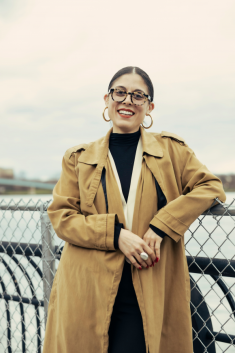
Sarah Medina Camiscoli joins Rutgers Law School as assistant professor of law, where she’ll teach courses on topics like constitutional law, education law, critical youth legal studies, and movement law. If you ask Camiscoli, progressive youth movement leaders provide deep insight on how to reimagine law and society to build a more equitable, representative, and functional democracy and, as a result, her writings are in solidarity with youth movement leaders who stand for racial and economic justice.
What do you like most about teaching?
I love the moments when I share information or insight that leaves a student feeling seen or inspired in a way that they had not felt before. It’s my superpower.
What is the most important thing every law student should know to successfully complete law school?
Find a vocation in law at the intersection of your greatest joys and the world’s greatest hungers. The love, accountability, and passion in that place will serve you for a lifetime.
How would you describe your teaching philosophy?
I believe in teaching the law from three dimensions: 1) how legal institutions create and interpret law; 2) how the bar will assess your knowledge of the law; and 3) how people without formal training in law call to attention the divide between law, justice, and the material realities of their lives. I believe in creating a learning environment where students experience power, confidence, and ease.
What do you hope to accomplish at Rutgers?
I intend to co-create the intellectual frameworks and organizational infrastructure to elevate youth power and dignity under law. In doing so, I intend to extend the legacy of the People’s Electric Law School to marginalized and mobilized young people.
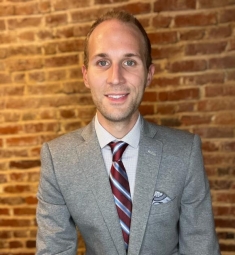
Adams Crews joins Rutgers Law School as assistant professor, after serving most recently as appellate counsel at the Federal Communications Commission, where he defended the agency's rules and orders in appellate courts across the country; coordinated with the Department of Justice on district court litigation; and served as a legal adviser on a variety of issues relating to telecommunications law and policy. At Rutgers, he will leverage his expertise in administrative law, federal courts, and statutory interpretation in courses such as Civil Procedure and Administrative Law.
What is the most important thing every law student should know to successfully complete law school?
It really is all about learning to think in a new way. Learning what the rules are is only part of the battle; the next step is understanding why the rule exists and, importantly, how it can be used to solve real problems.
How would you describe your teaching philosophy?
In the classroom, I want to leverage my practice experience to help students see how the abstract rules and principles they are learning apply in the real world so that they can better understand why we’re making them learn this stuff. But teaching doesn’t end when class does. As a first-generation college graduate, my goal outside the classroom is to be a proactive mentor and resource for students trying to navigate their way into the legal world, which can be confusing for people without much prior exposure to it.
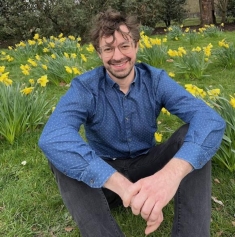
Jonathan Gingerich, associate professor of law, brings a rich scholarly expertise in legal and political philosophy to the Rutgers Law faculty. His research examines fundamental issues in ethical and political theory (exploring questions like, what is freedom?) and the applications of these questions in substantive areas of law. Gingerich is currently working on a book project about spontaneous freedom—the freedom of acting in unplanned and unscripted ways—and its implications for ethics, politics, law, and technology. This year, he will teach courses on the topics of property and copyright as well as a seminar on the theories of freedom.
What do you like most about teaching?
My favorite part of teaching is when students and I figure something out together—when a student asks a question that I haven't thought about before, and we think about it and talk it through as a group and make some progress in understanding it.
What is the most important thing every law student should know to successfully complete law school?
That your professors really want you to succeed! Go to your professors' office hours, ask them questions, get to know them. Your professors can be a great resource after you graduate, too. I am always delighted when I hear from a former student who graduated years ago and I'm always happy to give advice.
What do you hope to accomplish at Rutgers?
In my teaching, I hope to teach property and copyright in a way that makes them exciting and relevant for students. In my research, I hope to do groundbreaking research on fundamental questions about freedom and the nature of the self.
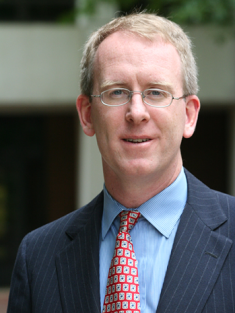
J.D. King, professor of law, joins Rutgers Law School from Washington and Lee School of Law, where he was the James P. Morefield Professor of Law, director of the Criminal Justice Clinic, and director of experiential education. He specializes in indigent criminal defense systems, defense and prosecution ethics, and the criminal adjudication of misdemeanors, and will be teaching courses on criminal procedure, professional responsibility, and sentencing.
What do you like most about teaching?
I love working with students to look at familiar problems in new ways. I love asking students to reconsider their assumptions and when they challenge me to do the same. I love helping students figure out how they want to impact the world for the better. I love mentoring students and watching how they go on to change the world.
How would you describe your teaching philosophy?
Effective teaching requires respect, collaboration, and a sense of humor. I try to always connect what we are learning, however theoretical, to its impact on the lives of real people and communities. When students get proximate to the people impacted by the law they are studying and when they feel supported, challenged, and respected, deep learning can happen.
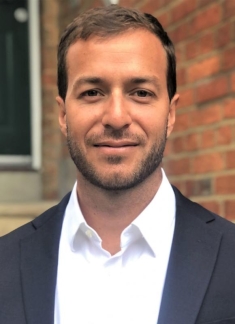
Crescente Molina, assistant professor of law, arrives from Harvard Law School, where he was a lecturer in law and post-doctoral fellow. Before that, he spent several years at the University of Oxford, where he received a doctorate in legal philosophy and was a research associate. Molina’s research primarily explores philosophical issues within private law. He has written articles on diverse topics in contract theory, the nature of promising, property rights, and the notion of legal power. At Rutgers Law School, he will be a member of the Institute for Law & Philosophy.
What do you like most about teaching?
The opportunity to convey to my students how intellectually fascinating and profound the law can be. I find it particularly rewarding to see how 1L students change their initial, pre-law-school views about what law is once they understand that underneath the thick weeds of areas such as contract, property, criminal, or tort law lie basic moral principles and deeply rooted social norms that are central to human societies. Teaching and studying law give you the opportunity to explore in detail and critically examine many of these basic principles and norms.
What is your advice for law students?
To approach each subject with an open mind and be patient! Though learning law is, to a significant extent, learning specific rules and doctrines, it is first and foremost about learning a way of reasoning. Do not get frustrated if after a few months in law school you don’t feel you “know” much because, if you work hard, a hidden process will be going on: you are learning how to think as a lawyer.
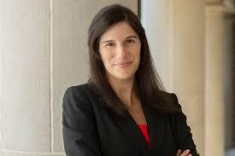
Kathryn Sabbeth, professor of law, teaches, writes, and litigates on issues surrounding civil justice and housing, and arrives at Rutgers from the University of North Carolina. Her recent publications include Eviction Courts, Racial Capitalism in the Civil Courts, and The Gender of Gideon. She is currently working on a book entitled Courts & Capital: How Market Power Shapes Law and Justice in the Civil Legal System, which is under contract with Cambridge University Press. At Rutgers, Sabbeth will co-direct the Housing Justice Clinic, teach a course on property law, and lead a seminar on access to justice.
What do you like most about teaching?
I learn so much from my students. Their energy, curiosity, and questions help me to see new possibilities in the world. They often bring their own expertise to the classroom. On the flip side, it’s also hugely rewarding to accompany them on their journeys of professional growth, as they develop confidence in new areas. Helping them to sharpen their thinking and figure out where they can take their newly sharpened tools is a privilege and a pleasure.
How would you describe your teaching philosophy?
My approach to teaching is based on four core goals: (1) to help students build a toolbox of thinking and problem-solving skills they can take with them after graduation; (2) to encourage in students a habit of critical reflection so they recognize decision points, take advantage of strategic opportunities, and continue to learn from experience; (3) to support growth in students’ professional identities as they transition into their societal role as lawyers; and (4) to help deepen students’ engagement with social inequality and possibilities for challenging it.
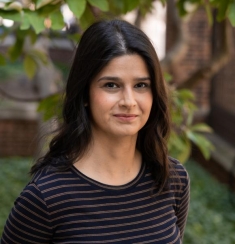
Seema Saifee joins Rutgers Law School as assistant professor of law, bringing expertise in criminal law, criminal procedure, and constitutional litigation to the faculty. Her research interests include mass incarceration and social change and draw in part on her experience as a staff attorney at the Innocence Project.
What do you like most about teaching?
To lead students to see the world around them differently than they did before class. Witnessing students experience that ‘aha!’ moment—where a jargony legal concept finally makes sense—and go out into the world and share their new knowledge with friends and family has been one of my happiest moments.
How would you describe your teaching philosophy?
My best teachers were not only faculty in the classroom, but also my former co-counsel. They brilliantly broke down difficult legal principles to lay audiences. I try to model my teaching similarly. I have found that following their example not only helps students to understand doctrine and grasp the meaning and purpose behind thorny legal concepts, but also challenges their conventional understandings and assumptions, deepens their curiosity about a subject, and inspires them to want to tackle a motion that once seemed dreadfully daunting.
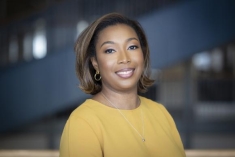
Tomica Burke Saul, assistant professor of law, arrives at Rutgers Law School from Columbia Law School, where she served as supervising staff attorney of the Entrepreneurship and Community Development Clinic. Her scholarship explores how law and public policy affect the small business ecosystem, and she is particularly interested in using the law to create economic justice for historically disadvantaged entrepreneurs.
What do you like most about teaching?
I love to watch my students gain transactional legal skills. Many times, the clinic is the student’s first exposure to transactional law and by the end of the clinic they are drafting their own agreements. I feel honored to demystify this area of practice and help build a set of skills students will carry through life—whether they become transactional attorneys or not.
I also love to share my enthusiasm for entrepreneurship and inspire advocacy for small business owners. Over the course of the semester, the students become invested in the success of their clients. I hope this leads them to become small business supporters for life.
What is the most important thing every law student should know to successfully complete law school?
Run your own race. Although at times it can feel like you are competing with your classmates, there is room in the legal profession for all of you. The law is very diverse with many different specialty areas. Take time to cultivate your existing interests (or explore new ones) while you are in law school. You may end up practicing in those same niche areas years down the road.
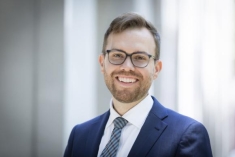
Greg Baltz Joins Faculty
Greg Baltz came to Rutgers Law in 2022 as a Visiting Assistant Professor. He's now Assistant Professor of Law and continues to co-direct the Rutgers Law School Housing Justice & Tenant Solidarity Clinic. His primary scholarly interests are in the fields of access to justice, law and social movements, and property law. His empirical scholarship focuses on the justice gaps in our courts and agencies as well as the regulatory structures that govern housing markets. His work investigates how the law informs, facilitates, and undermines community organizing strategies.